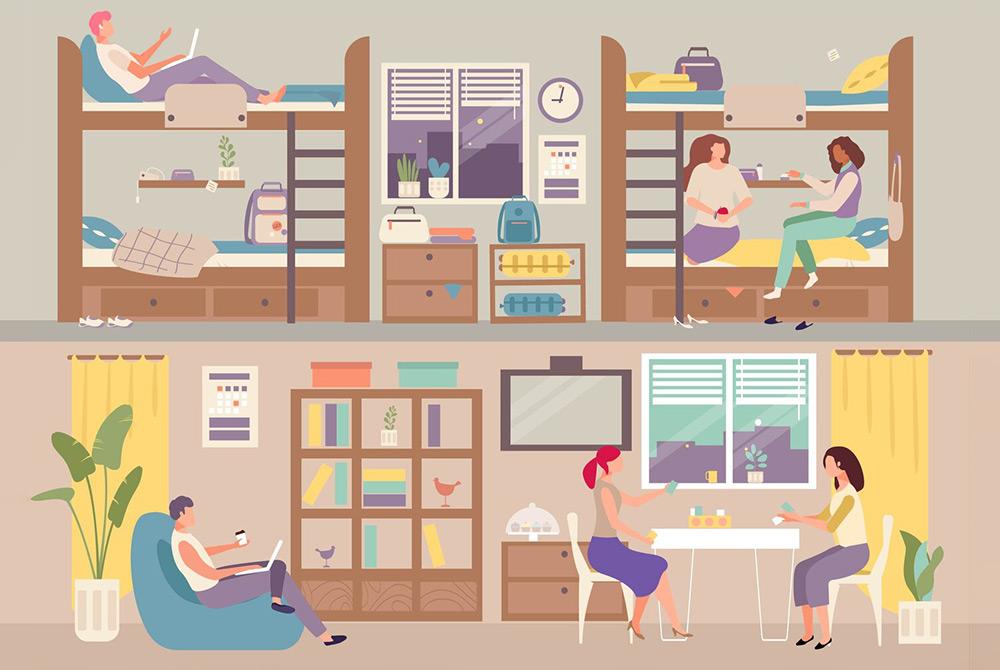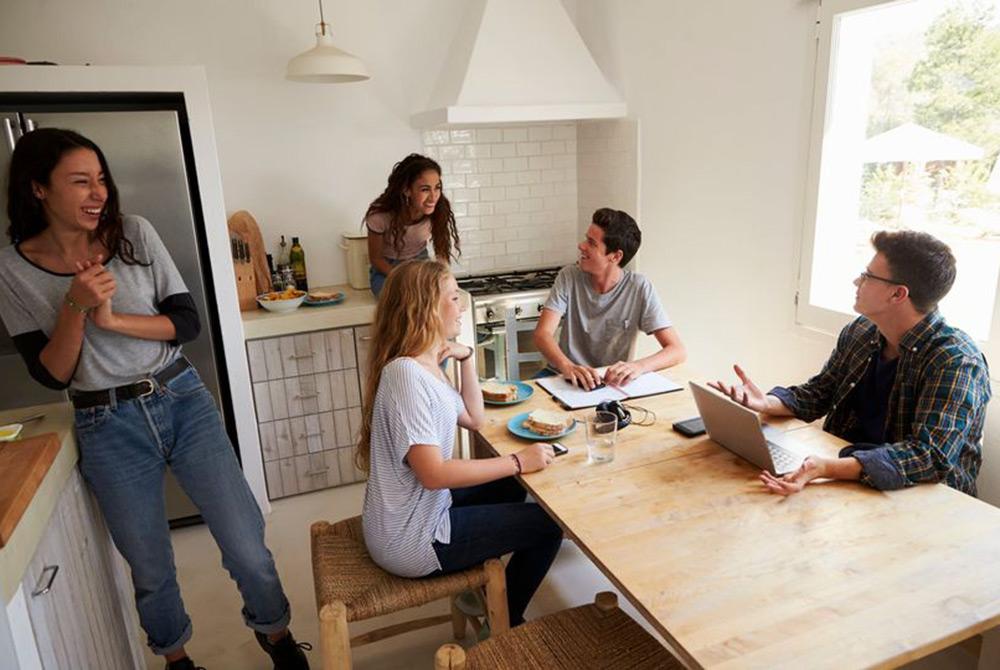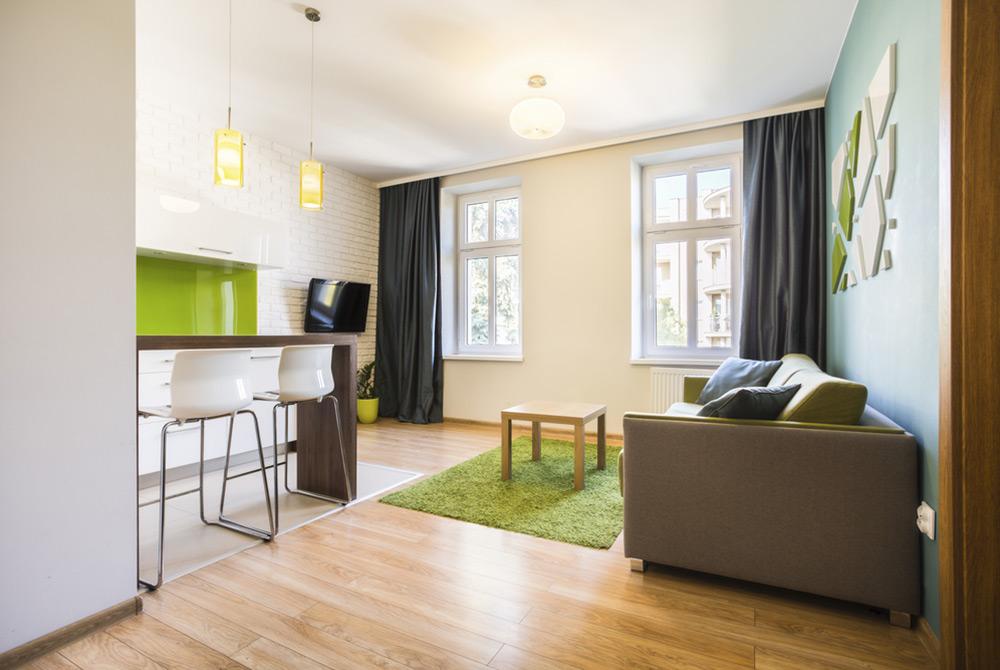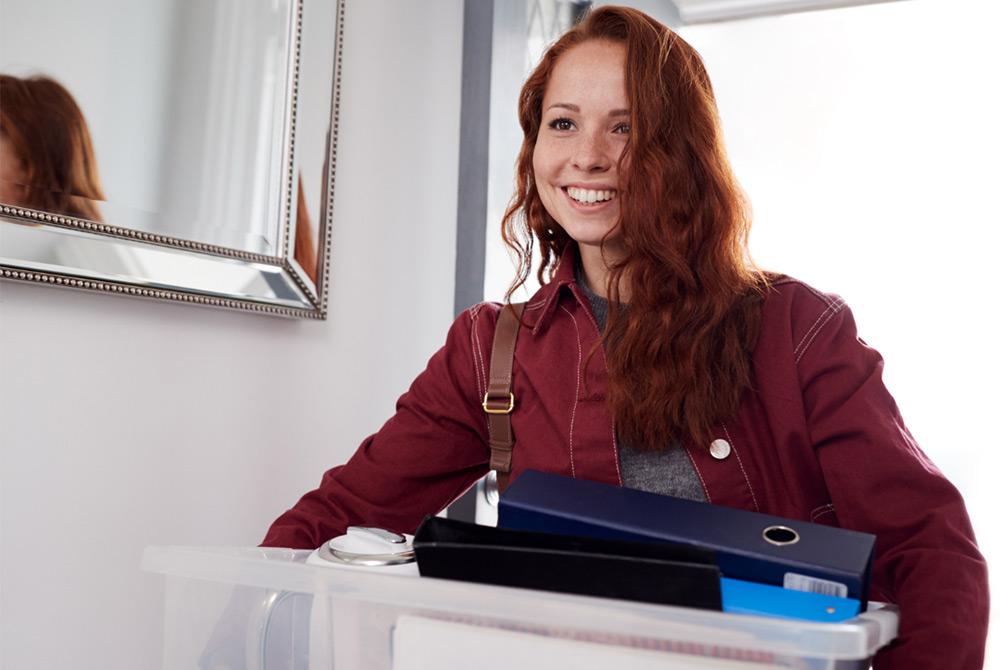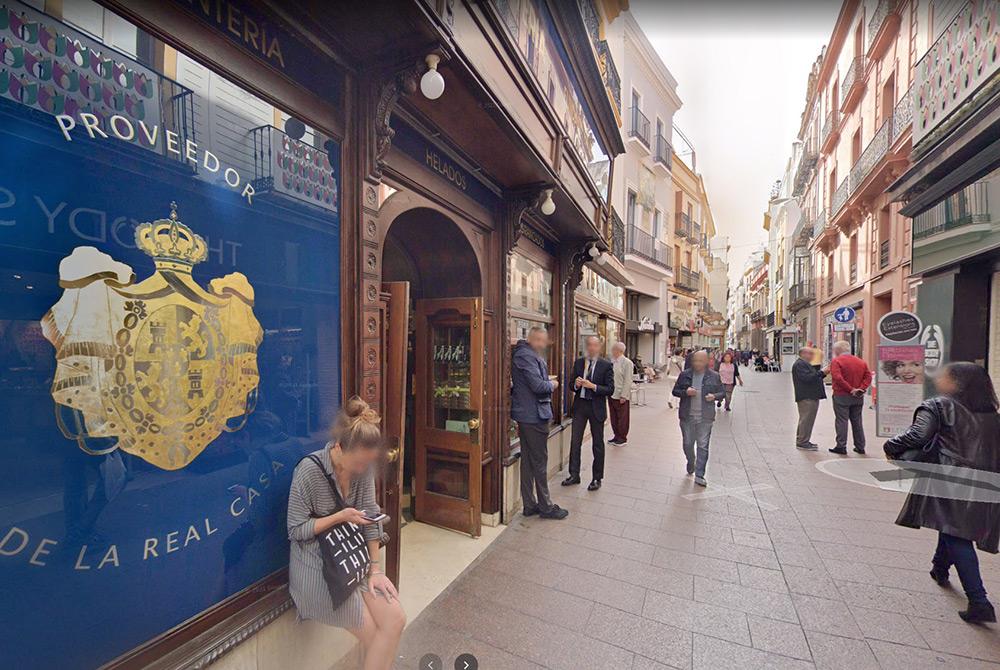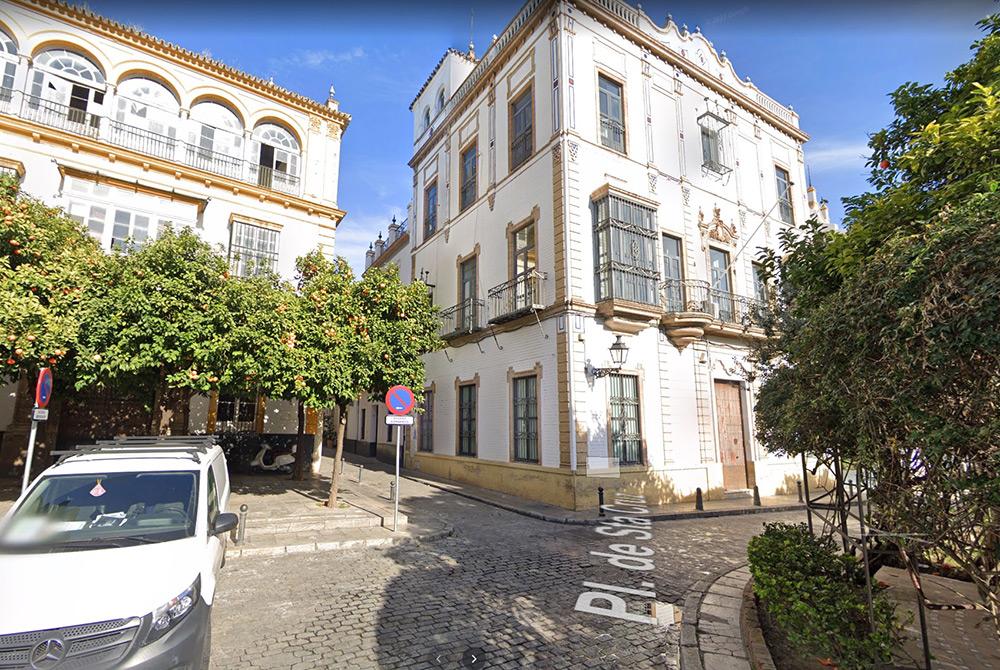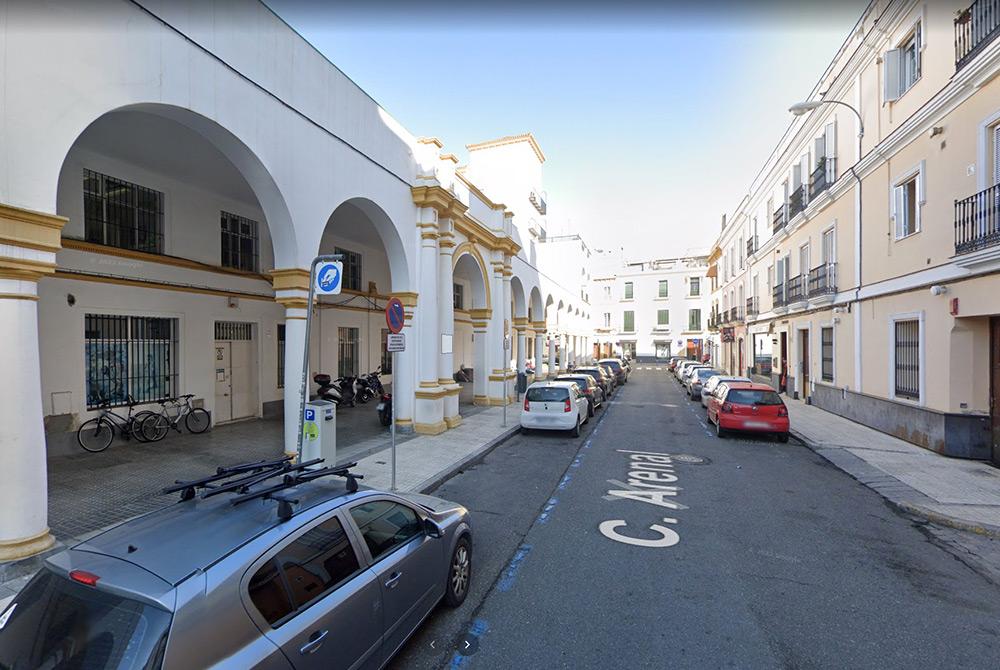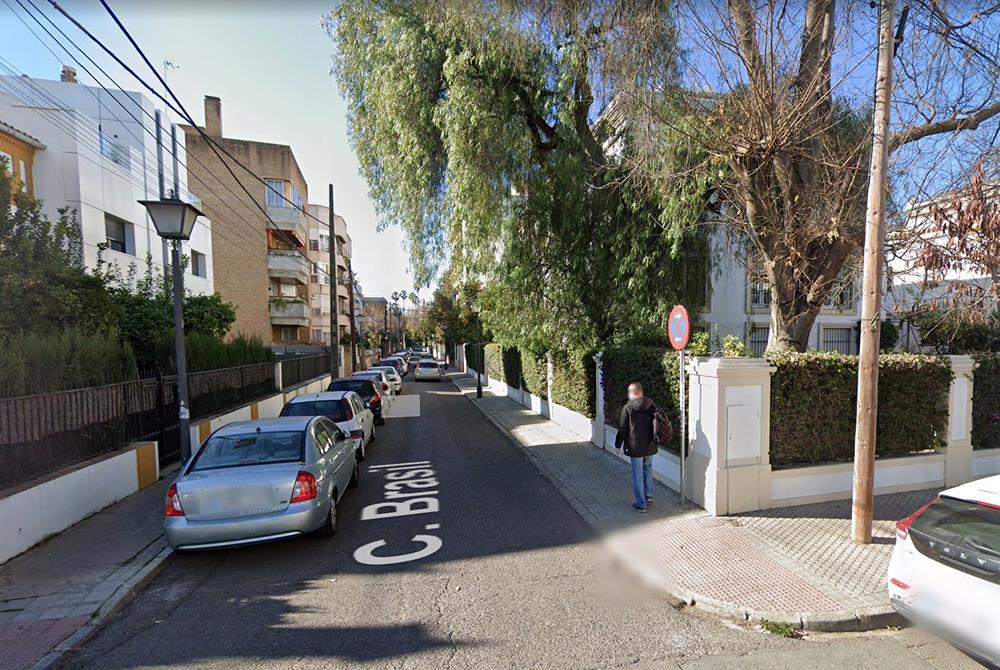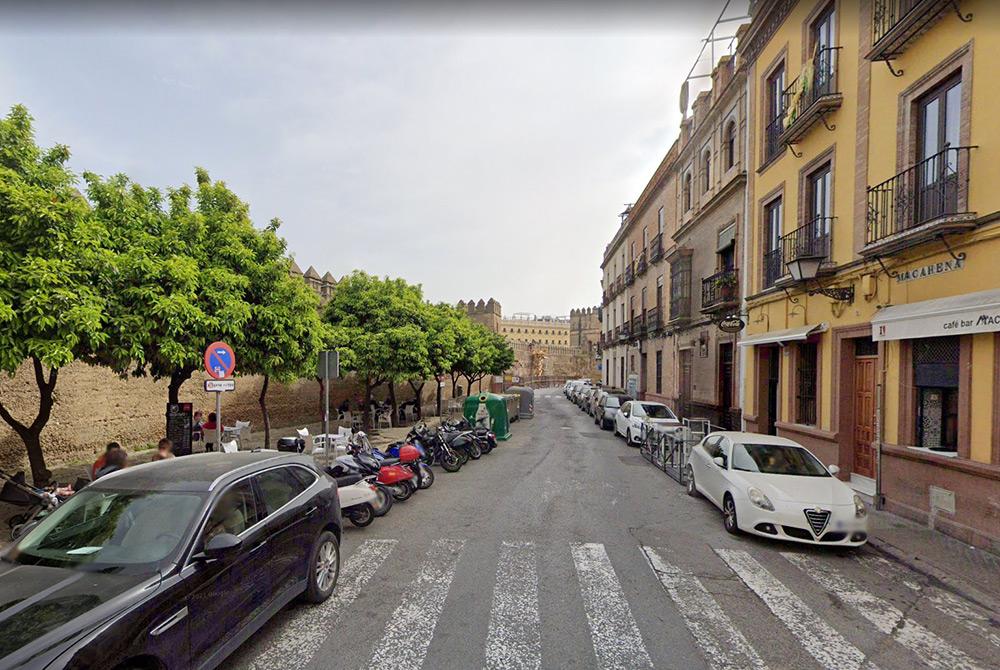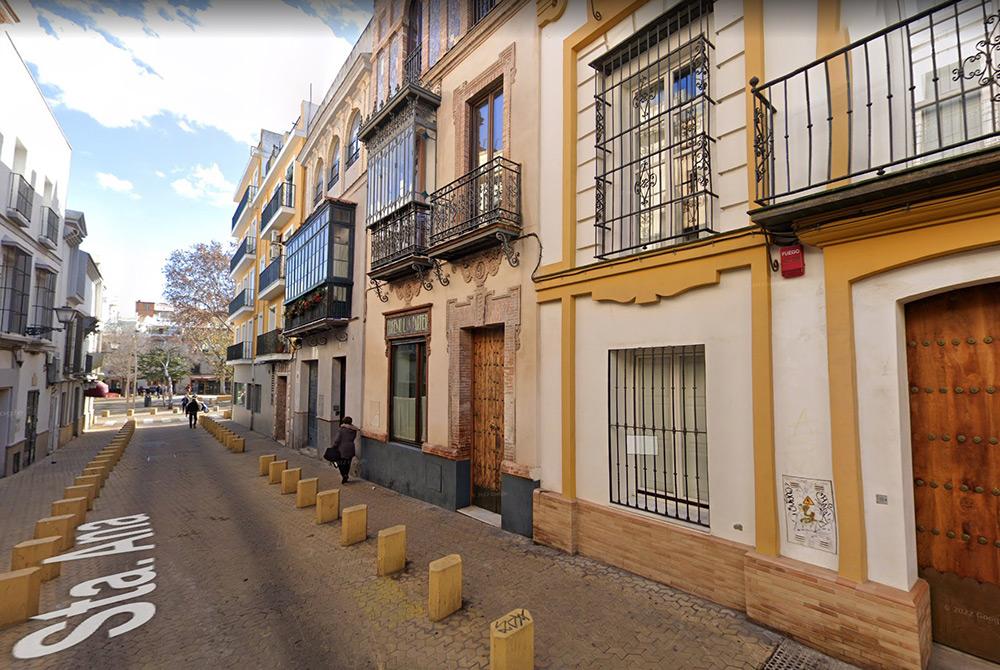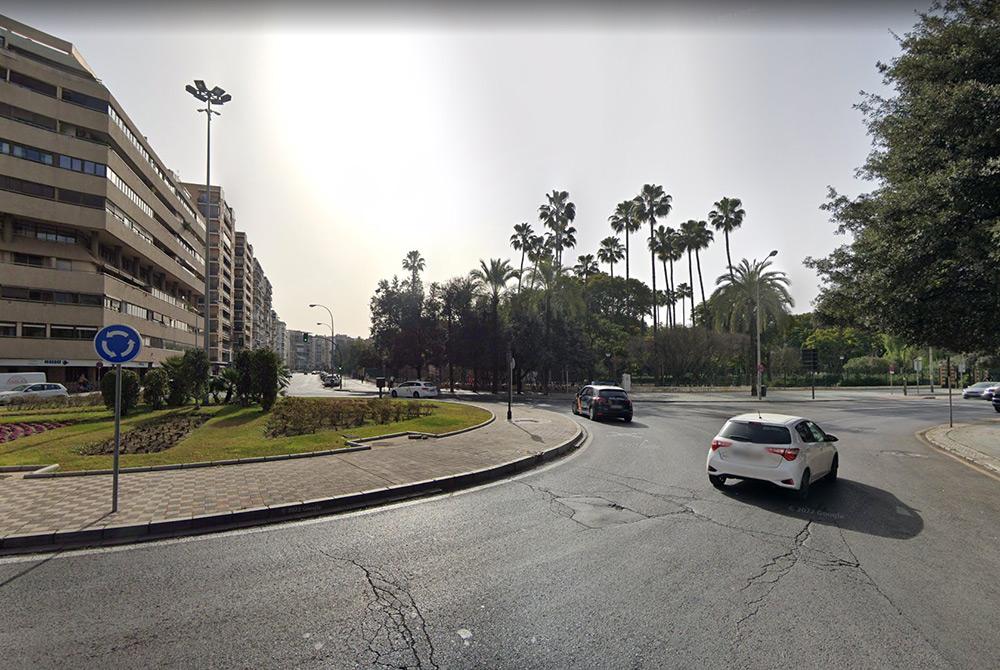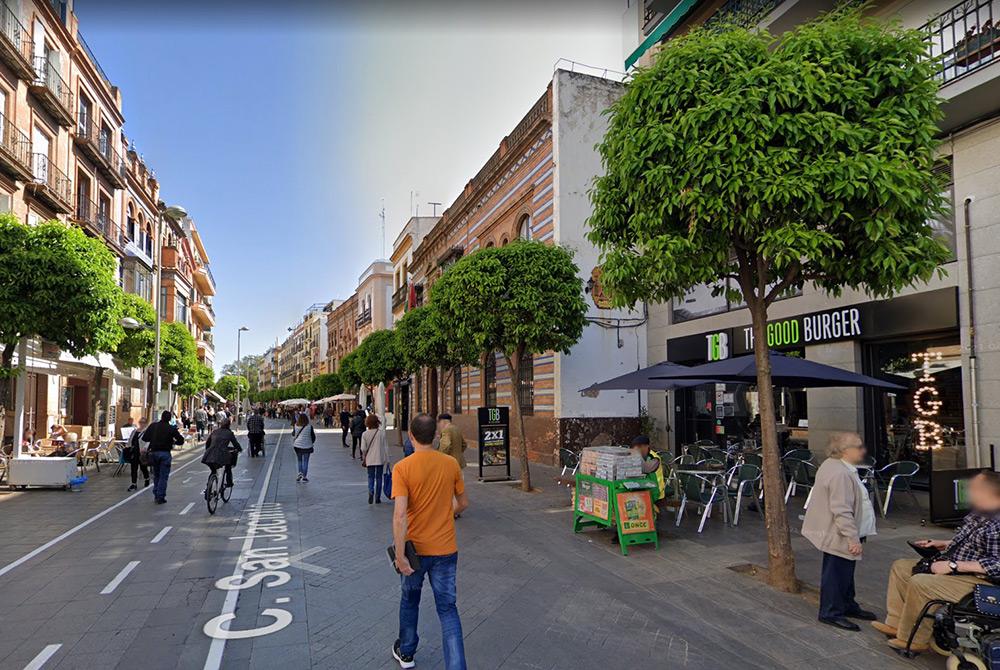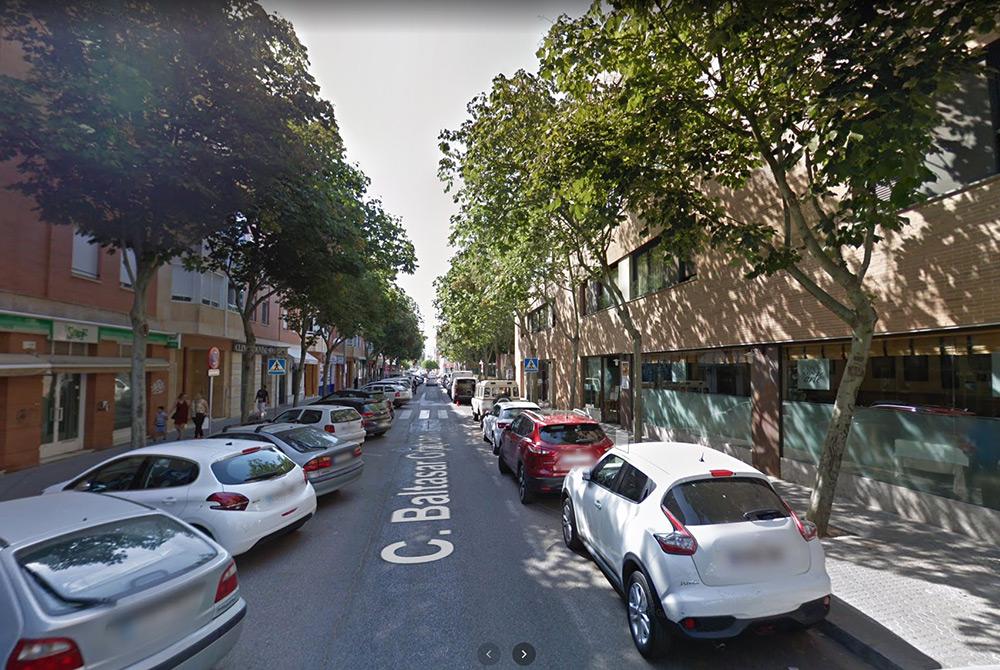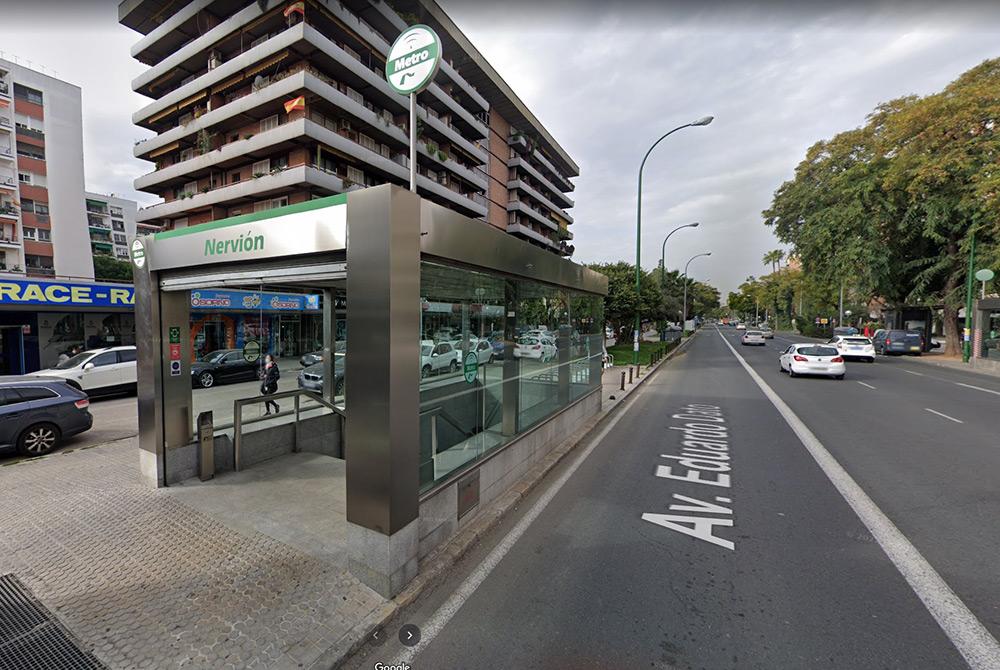Are you looking for student accommodation in Seville?
When it comes to finding student accommodation in Seville, you should keep in mind that having a decent place to live is key to making your time in Seville an amazing experience. Getting it wrong will waste time and money and will negatively affect your studies and leisure time.
But don’t worry, it’s not difficult to find an excellent place to live in Seville as a student.
Seville is the capital of Andalucía and is one of the most beautiful cities in Spain to visit and study in.
You’ll soon see that there are lots of accommodation options in Seville, as many international students study here every year.
Student accommodation in Seville: tips to keep in mind
Seville is a student city, so there are hundreds of flats for rent. Make sure you visit them before you agree to anything to avoid scams.
Our first tip is to arrive in Seville a week before your course starts and stay in a youth hostel. This way, you’ll be able to view accommodation options in person.
If you want good quality temporary accommodation, book as far in advance as possible. The best accommodation gets booked up quickly, especially during the tourist season from March to June and September to November.
Bear in mind that Seville is very hot from June to September, so air-conditioned accommodation is essential.
Student accommodation in Seville: types of accommodation
Shared flat
Living in a student flat during your stay in Seville is a great way to meet other students from all over the world and live in an international environment.
Shared apartments are not usually luxurious, but they’re fully furnished and equipped with all the necessary appliances for everyday life. Each flat has a fully equipped kitchen with a microwave, pots and pans, cutlery and everything you need to prepare your meals.
You’ll find a lot of shared flat adverts online before you arrive. However, it’s best to arrive in Seville one or two weeks before classes start, book into a youth hostel, and check the classified ads on sites like Idealista and Fotocasa. You can also find them in the “Alquiler” section of the newspapers “El País”, “El Mundo” and “La Vanguardia”.
Another option: contact students from your country who moved to Seville the year before. One of them might be able to hand over their flat to you when they leave.
Prices can range from 250 to 600 euros per month for a room, depending on the area and the quality of the flat. As you can see, affordable rent prices are one of the advantages of studying in Seville.
Are you prepared to live with other students in a shared flat?
Sharing a flat has many advantages and is becoming more and more popular.
The financial aspect of sharing a flat is usually the top advantage for most people, and the idea of living with other people is also attractive.
That being said, life with other flatmates can quickly turn into a nightmare without organisation, compromise and communication. How do you know if this lifestyle is right for you?
Make no mistake, living with a flatmate is not communal living, contrary to what some people think. Everyone has their own private space that allows them to “isolate” themselves when they want to. In a shared flat, everyone should feel at home under the same roof.
Shared accommodation means you’re not alone in a flat. You’ll meet new people and are sure to make new friends!
But living in a shared flat means you need to know how to live with others. You must be able to share space, time and household chores; organise yourself; and be patient and tolerant.
You have to adapt to the rhythm and needs of your other flatmates; possibly make compromises in terms of flat decoration; accept that your flatmates have a love life; and manage money matters, the contents of the fridge, the shopping, the cooking rota, etc. For this reason, a set of rules in a shared flat is often essential to get everyone on the same page.
Although, in general, it’s not advisable to be a neat freak in a shared flat (nobody is perfect!), it’s essential to implement and follow some basic rules regarding common courtesy, sharing and communication. And not everyone can do this.
This website can help you find the perfect roommate for your studies in Spain: aluni.net. You can also have a look at Pisocompartido.com.
Staying with a host family
Sevillanos are good-natured and hospitable people. Host families are usually very friendly and will welcome you into their home as if you’re a member of their family.
Living with a host family has many advantages, as they offer meals (half or full board) and help with household chores, such as laundry, cleaning, etc. It’s a good idea to also help with these tasks. This option is a similar situation to living with your parents.
Living with a Spanish family has several benefits. First of all, you’ll have the opportunity to practise Spanish daily and put into practice what you have learned in class in an authentic Spanish environment. It’s also the best way to get to know the Spanish way of life, culture and traditions.
If you’re open, sociable and don’t mind adapting to cultural differences, you’ll love staying with a host family. They’ll welcome you with open arms because they value cultural exchange too.
The price of a stay with a Spanish family can be between 450 and 550 euros. The price is higher for a private room, but meals are usually included.
Flat or studio
If you prefer private and independent accommodation, you can choose to live in a one or two-bedroom flat.
You will have total independence, without having to share with other people you don’t know, which is important for some students.
Flats and studios to rent are fairly easy to find, as Seville is a very touristic city. However, it’s a more expensive option than living in a shared flat, and prices can be similar to those of student residences.
For the more independent person, it’s the best choice.
Two of the most popular websites are idealista.com and fotocasa.es. They are widely used in Spain to find a flat or apartment. On these sites, you’ll find many flats offered by both estate agents and individuals.
Estate agencies (Agentes Propiedad Inmobiliaria) allow you to deal with an agent rather than directly with the owner. An agency’s commission is typically the cost of one month’s rent.
The rent price for flats in Seville varies depending on where you are in the city. The price of a one-bedroom flat in the city centre ranges between 550 and 750 euros, and that of a one-bedroom flat outside the centre is between 400 and 550 euros. The price of a room in a shared flat starts at around 200 euros. Triana is a popular student area…
Student residences
Living in a student residence is another good option. You can meet students from all over the world and live in a friendly, multicultural and exciting environment.
In Spain, student residences offer a wide range of services: electricity, internet connection, cleaning, and even sports and cultural activities. Sometimes they also offer meals. The cost can be high: between 700 and 1,000 euros for a room in a “colegio mayor”.
Keep in mind that halls of residence are often located outside the city centre, and there may not be much activity in the area, especially for young people. Don’t forget that studying is important, but so is your social life! Keep this in mind to keep your spirits up and avoid feeling homesick for your family and friends.
Student accommodation in Seville: the best areas and neighbourhoods to live in
In general, living in the centre of Seville is always more expensive than living in the outskirts or nearby towns. These places, however, are usually well connected by trains or buses that allow easy access to the city centre in less than 30 minutes, so it’s an option to consider as well.
In Seville, the residential areas are in the outskirts of the city (Sevilla Este, Heliópolis) as well as in some municipalities around Seville in the Aljarafe area, the northern area (San José de la Rinconada and La Algaba), and in the south (Alcalá de Guadaira or Dos Hermanas).
With our accommodation recommendations, you’ll see that some areas are much more suitable than others to visit the city and enjoy the Andalusian lifestyle.
Student accommodation in Seville: the historic centre of Seville
The historic centre of Seville is a great location to live in if you want to enjoy Andalusian culture to the max. This is a typical tourist area where you’re sure to spend most of your time. It has good nightlife and is full of bars and places to have a drink.
The best deals that balance location and budget are in the neighbourhoods of El Porvenir and Macarena. If you’re looking for budget accommodation, Santa Justa, Nervión, Triana, and Los Remedios are the best options.
Student accommodation in Seville: the Santa Cruz neighbourhood: immersion in Seville’s historic centre
Staying in the Santa Cruz neighbourhood of Seville is the best way to immerse yourself in Andalusian culture.
The Barrio de Santa Cruz is lively and bustling. Once you arrive in this labyrinth of touristy little streets, you’ll be immersed in its amazing atmosphere, both during the day and at night.
If you want to visit the city on foot, staying in the Barrio de Santa Cruz is very convenient. You’ll be close to the main sights, such as the Alcázar and the Cathedral of Nuestra Señora de la Sede, recognisable by its Giralda, an ancient minaret-turned-bell tower. Its perfect location makes it a great place to stay.
In addition, its central location means that you are within walking distance of other areas. This allows you to come and go and enjoy the lively bars and restaurants lining the streets of the Andalusian capital.
There’s a wide range of accommodation on offer for all budgets in the historic centre. However, the popularity of Santa Cruz means that prices are higher than in the surrounding area, especially during the high tourist season (April-May and October-November). These months are the best for tourists because of the pleasant weather: sunshine and mild temperatures.
From a cultural point of view, it’s where the Town Hall of Seville is located. For museum lovers, the Palacio de Bellas Artes can be found in the chic area of Museo, a quieter area with fewer tourists.
For modern art lovers, the Metropol Parasol (Las Setas) is just a few minutes’ walk north. This gigantic wooden structure is one of the city’s architectural curiosities. At the top of the structure, there’s a pedestrian bridge from which you can enjoy magnificent views of the city.
Another advantage of staying in the city centre is that it’s home to the largest national and international shops.
Student accommodation in Seville: the El Arenal neighbourhood, discovering Andalusian culture
The El Arenal neighbourhood is the area surrounding the bullring. In the past, it was the port district of the city. It’s located next to the historic centre and on the banks of the Guadalquivir river.
Accommodation in Arenal is a very good option. This area is always very lively, but on days when a bullfight takes place, the atmosphere is electric!
It’s a touristy and well-located area with a wide range of tapas bars, some of which offer flamenco shows.
Just like in Santa Cruz and the city centre, parking in this area is limited.
Student accommodation in Seville: the El Porvenir neighbourhood
Located just south of Santa Cruz and once famous for its royal tobacco factory, El Porvenir is home to most of Seville’s university faculties. The northern part of this district is very close to the historic centre, making it a convenient place to stay.
El Porvenir is a must-see area of the Andalusian capital. There are several museums and an aquarium, but the main point of interest is the magnificent Parque María Luisa.
This park is surrounded by the Plaza de América and the beautiful Plaza de España, where you can admire tiles depicting the return of Christopher Columbus. The Plaza de España is an absolute must-see in Seville.
Accommodation in Seville for students: the Macarena and Alameda de Hércules neighbourhoods
The Macarena and Alameda de Hércules neighbourhoods are located in the north of the city.
Known for its bohemian atmosphere, the Macarena is a good alternative location close to the historic centre. The Cathedral is only a twenty-minute walk away.
It’s lively, has many shops, and is a nice place to stay during your time in Seville.
It’s home to an impressive basilica, a quiet convent, and many popular bars. This mix gives the neighbourhood a unique atmosphere. The courtyards and gardens of the Palacio de las Dueñas are beautiful places to go for a stroll. The Macarena and Alameda de Hércules also offer small local markets and tapas bars.
Both neighbourhoods are good living options. The prices are affordable and the atmosphere is great. What’s more, the location is good, as you only have to walk around twenty minutes to visit the main monuments of the historic city centre.
Student accommodation in Seville: the Triana and Los Remedios neighbourhoods
These neighbourhoods are located on the west bank of the Guadalquivir river. Staying here gives you the opportunity to walk along the river bank and enjoy a beautiful view of Seville.
Triana was once a maritime village separate from the Andalusian capital. Today it’s a district in its own right, where you’ll find the best artisan potters and ceramists.
The popular neighbourhoods of Triana and Los Remedios have a quieter atmosphere than those on the other side of the river and are not very lively at night. You have to cross the Isabel II bridge to get to the heart of the city. Staying in this area of Seville is a good way to recharge your batteries before or after a trip to the historic centre of the city.
It’s home to the Triana Market and the old Castle of San Jorge, part of which has been restored and is now a covered market.
If you’re looking for cheap accommodation, you’ll find it in these areas. Prices are lower here than on the other side of the river.
Student accommodation in Seville: the Santa Justa and Nervión, two areas with cheap accommodation
Santa Justa is the name of one of Seville’s train stations.
Staying in this area is a good option if you want to be close to the station. On the other hand, the charm of Andalucía is lost, having been replaced by large roads. It’s relatively easy to find cheap accommodation here.
Like the Santa Justa area, staying in Nervión is also a cheap option. The advantage of Nervión is that it has a metro line, which allows you to get to the city centre in about ten minutes (via the Puerta Jerez station, next to the Alcázar). You can then take the tram (line T1) to extend your journey a little further north.
Accommodation in Seville for students: a summary
To get the most out of Seville and your time here, we recommend you stay in the historic centre of the city, ideally in Santa Cruz, or in the adjoining El Centro or El Arenal districts.
If you’re on a tight budget, staying in the more out-of-the-way places in Seville will bring down the price of rooms. The ones that stand out are El Porvenir and Macarena. They offer a good balance between location and price.
The areas to consider as a last resort for accommodation in Seville are Santa Justa, Nervión, Triana, and Los Remedios. The accommodation in these areas is good value for money, but the downside of living in these areas is that you have to walk far to get to the centre and lively nightlife areas. You also miss out on a nice night-time atmosphere.
Cost of living in Seville
The cost of living in Seville is not the same for everyone. It depends, of course, on where you are going to live and the lifestyle you want to lead. As a student, you’ll probably want to live as affordably as possible, and although the Andalusian capital is one of the most expensive places in Spain, it’s still cheaper than many European cities.
Accommodation is likely to be your biggest expense, followed by food. Fortunately, in Seville, you can eat well for very little money. There are plenty of fruit and vegetable markets, reasonably priced supermarkets, tapas bars and good value restaurants.
Example of average costs:
Regular coffee – 1,48€
1 litre of milk – 0,77€
1 kilo of local cheese – 10,85€
1 bottle of wine – 5,00€
1 bottle of local beer (0.5 litres) – 0,64€
1 kilo of apples – 2,10€
1 loaf of fresh local white bread (500g) – 0,91€
One-way bus ticket – 1,40€
Monthly travel card (unlimited number of journeys) – 35,30€ (2€ processing fee)
Student travel card (valid from 1st September to 31st July – no travel limit) – 190€ (2€ processing fee).
We hope this blog post has provided you with useful information about accommodation in Seville and has motivated you to decide to study in Seville very soon.
If you’re thinking of studying Spanish in Seville, take a look at our Maus School courses. Also available online.

